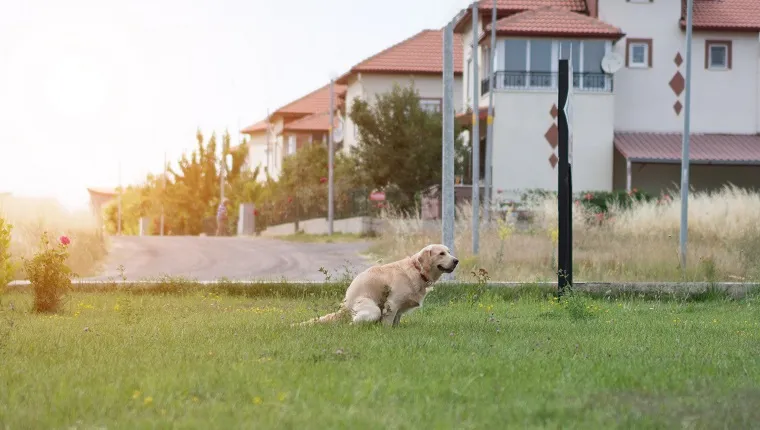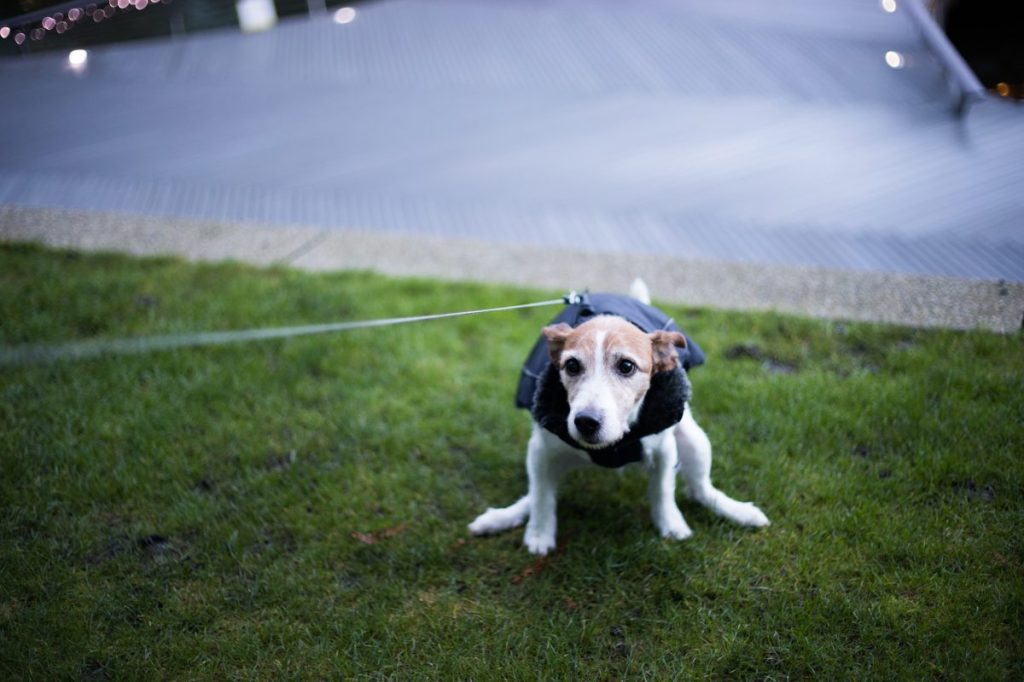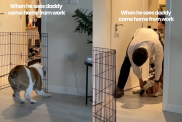Fecal impaction in dogs is a condition where very hard and dry stools collect in the rectum or colon. The affected dog is unable to pass the stools as normal.
Common causes include not drinking enough water or eating an inappropriate diet. All dogs can suffer from this condition, but elderly canines often have more frequent digestion-related problems.
If you see the signs of fecal impaction in your dog, then you must get to a veterinarian for a proper diagnosis and treatment. Here’s what you should know about the symptoms, causes, and treatments for fecal impaction in dogs.
Symptoms Of Fecal Impaction In Dogs
Signs of fecal impaction in dogs usually first appear as difficulties while defecating or attempting to defecate.
Some of the most common symptoms include:
- Straining while attempting to defecate
- Seeming in pain while defecating
- Defecating less often than usual
- Less of an appetite
- Showing weight loss and seeming lethargic
Causes Of Fecal Impaction In Dogs

Fecal impaction happens when a dog is unable to pass stools as usual.
Some of the reasons why a dog might be having trouble passing their stools include:
- Not drinking enough water
- Not having enough fiber in their diet
- Eating small, foreign objects like toys, stones, or plants
- Not getting enough exercise
- Trauma
Treatments For Fecal Impaction In Dogs
If your veterinarian suspects that your dog might be suffering from fecal impaction, they’ll carry out a full physical examination, including a manual examination of the dog’s rectum.
Your vet will also want to know about your dog’s medical history and any specific symptoms you have noticed, including the frequency of defecation lately. Sometimes, they’ll order a radiograph to get a better visual idea about what might be going on in the dog’s colon.
Once they veterinarian confirms their diagnosis, they might suggest laxatives to help the stools pass. They may also recommend an enema.
The veterinarian will discuss focusing on your dog’s diet, water intake, and exercise regimen. In some instances, adding pumpkin to your dog’s meals can help increase the fiber in their diet.
Has your dog ever dealt with fecal impaction? What steps did your vet take to help your dog? Let us know in the comments section below!









